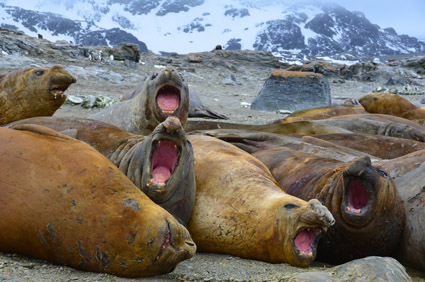 The work of SCAR in achieving its mission is carried out by its many and varied groups, including its specialized subsidiary Expert and Action groups. There are currently over 30 such groups, established by the main Science Groups, or in some cases by the Executive Committee, which are working over a limited timeframe to address specific research topics of interest to the community. The work of these groups advances understanding of all aspects of the Antarctic region and may result in seminal publications, and feeds into the advice given to the Antarctic Treaty System and other policy makers.
The work of SCAR in achieving its mission is carried out by its many and varied groups, including its specialized subsidiary Expert and Action groups. There are currently over 30 such groups, established by the main Science Groups, or in some cases by the Executive Committee, which are working over a limited timeframe to address specific research topics of interest to the community. The work of these groups advances understanding of all aspects of the Antarctic region and may result in seminal publications, and feeds into the advice given to the Antarctic Treaty System and other policy makers.
Groups report to their parent Science Group (Geosciences, Life Sciences or Physical Sciences), are allocated budgets for their activities and are periodically reviewed to help focus SCAR outcomes on the most important priorities and products needed. Membership is open to any interested researchers from SCAR member countries.
A new guide has been produced detailing the procedure for establishing a group. Researchers can propose new groups when they identify areas where current research is lacking or more coordination is needed. The first step in the process is to gather together a small group of people to work on developing an idea of what the group would aim to do and over what timeframe, liaising with the SCAR Secretariat and/or the Chief Officers of the relevant Science Group to work out how the group would fit into the larger SCAR structure.
Full details of the process for establishing a group can be found on the Group Proposal page of the website and in the SCAR Group Proposal Procedure document.
The process for establishing a new Scientific Research Programme is detailed in the 2011 document, Guidelines for the establishment of SRPs.
